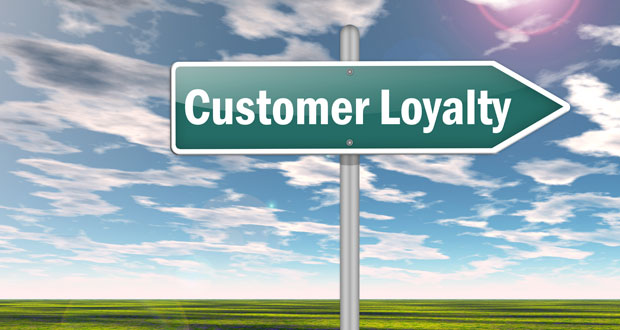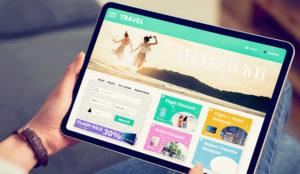Getting customers — and keeping them — is the name of the game in e-commerce.
“The e-commerce market is crowded and noisy, and brands need to do everything they can to differentiate themselves from the pack,” said Eric Hansen, CTO of SiteSpect.
“Loyalty programs do just that, giving a brand the edge they need to stay a step ahead of their competitors,” he told CRM Buyer.
1. Think Beyond Rewards and Points
Inspiring loyalty to your brand and your products is a vital part of e-commerce, but the best loyalty programs go beyond offering rewards and points.
Building true, lasting customer loyalty involves incentivizing customers to spend time at your site and, most importantly, to return.
“A loyalty program can really be anything that inspires a customer to keep coming back,” explained Hansen. “With that in mind, brands would do well to broaden their thinking when they consider inspiring loyalty. The traditional loyalty programs that offer perks like loyalty points and free shipping are great, but they are by no means the only perks brands can offer customers.”
For instance, thinking beyond the usual loyalty offerings could mean offering a branded app to draw customers in — and keep them coming back.
“Offering a branded app that centralizes the customer experience can be a fantastic way of not only streamlining the customer experience but also establishing a trusted customer touchpoint,” said Hansen. “Brands can use this trust to offer targeted upsells and promotions, allowing fast and easy purchasing of favorite products.”
2. Offer a Personalized Experience
One of the most important steps that e-commerce businesses can take toward building a loyal customer base is to cater to those customers’ desire for attention, care, and understanding.
“A loyalty program is all about bringing value to customers through offerings that feel tailor-made,” said Como SVP Yair Holtzer, head of Como USA.
“To do so, retailers need to leverage the data they gain from their customers’ online behavior to communicate with them in a personalized way,” he told CRM Buyer. “That personalization involves relevant product recommendations, contextual content, customized messages, and more.”
Personalization can create a deep sense of loyalty. Customers want to be understood, and they appreciate the time and effort they can save if a retailer knows the kinds of products and services they’re looking for.
“A personalized customer experience is one of the most powerful perks out there,” said SiteSpect’s Hansen. “Presenting customers the products they want every time they visit the site — as well as providing helpful, targeted suggestions and promotions — will inspire loyalty.”
3. Be Data-Savvy
Collecting and interpreting data about customers’ past purchases and behaviors is a central component of tailoring their experience when they’re on your site.
“Reward frequent shoppers by collecting data on their past purchases, preferences, and recently browsed items,” said Hansen. “If a customer rarely has to search for the product they want and they feel like the company knows them well, they will be less likely to go elsewhere for their needs.”
Gathering and interpreting data is a way of getting to know your customers, and that data can, in turn, enhance their shopping experience and potentially inspire them to buy more.
“Start by categorizing your customers into segments, giving each customer tags based on their shopping behavior — such as purchased items, total spend per visit, frequency, etc., or personal information,” suggested Holtzer.
“I recommend using these tags to group customers into around three or four different tiers,” he continued. “Each tier should have its own rewards program based on a specific ratio of points earned to the amount spent, as well as personalized offers. This tier-based approach helps you convert low spenders into major customers by presenting them with enticing deals that are based on their personal preferences and behavior.”
4. Provide Good Content
The more helpful, complete, and engaging the content is on an e-commerce site, the more likely customers are to shop there — and to return.
Including in-depth product listings, downloadable manuals, comparison guides, and well-produced videos might not look like a traditional loyalty program, but providing strong content can be an effective strategy in the process of building trust between a business and its customers.
“When companies have good content on their site, it inspires loyalty,” observed Kenji Gjovig, VP of partnerships and business development for Content Analytics.
“Good content will help a buyer make a good decision,” he told CRM Buyer. Customers can shop in many different places, so it’s important to increase the stickiness of a customer within your own ecosystem.”
5. Incorporate Social Components
Enhancing the social experience of shopping is another way to build a sense of loyalty and belonging, along with attracting new customers.
“Today’s customers place a huge premium on a sense of belonging, and loyalty programs that nurture that desire have had a lot of success of late,” said Hansen.
Customers are social, after all, and they often appreciate seeing their social lives mirrored in their shopping experience.
“Loyalty programs that focus on incorporating social components, allowing a shopper and their friends to interact on a brand’s site, can help to create new value for a loyalty program by enabling consumers to not just see recommendations based on their past purchases, but also based on friend’s preferences or picks,” said Hansen. “This showcases that the brand understands how today’s shopper browses online instead of in a mall.”
In fact, some promotions work best when they have a social component, and they ultimately can inspire loyalty in a whole network of customers.
“Capitalizing on social data, these same companies can also take the time to understand promotions that may work better for a group rather than individuals,” explained Hansen.
“For example, sharing a deal that if a consumer and three of her friends buy winter boots, they all get 25 percent off could help to drive sales of boots and incentivize a group to direct their boot needs to that particular brand,” he said.
In the end, it’s vital that businesses remember that loyalty is all about developing a connection with their customers.
“Going way beyond rewards and points, a loyalty program makes customers feel appreciated and connected to the brand,” said Como’s Holtzer. “This method transitions consumers from shoppers to loyal customers who consistently return.”

























































